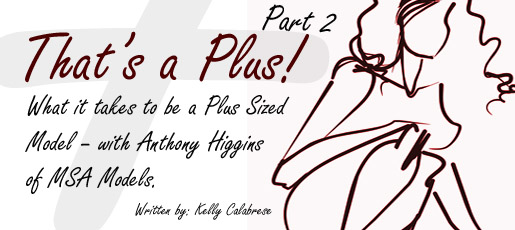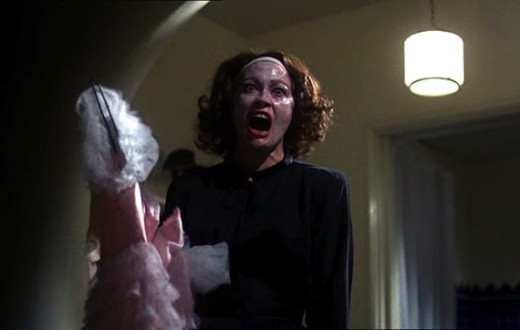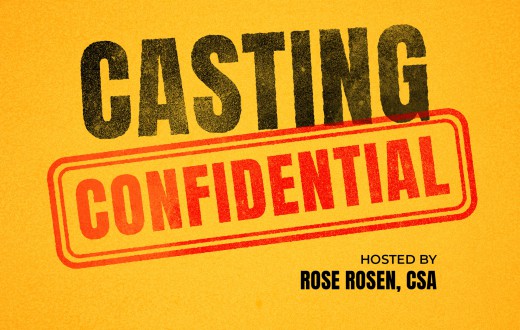Auditions are a mysterious beast.
If you talk with any five casting directors, you’ll get five different takes on what makes a great audition:
- It’s a job interview. Be professional.
- No, it’s more like joining a family. Be warm.
- No, it’s a sales pitch. Sell your product: you.
- No, it’s a group therapy encounter session. Connect.
- No, it’s something in between all of that: make a connection but keep your distance but sell your product but be professional but join the family…etc., etc.
And they wonder why actors are crazy.
The truth is everyone has a different brain, and a different set of experiences, and different emotional and mental filters with which we process the world. So we all view everything, including auditions, differently.
But one thing that is anathema to every casting director you will ever encounter is predictability.
Boring never sells.
But, you ask – faithful actor that you are who sticks to the script word for word as we were all taught – how can we possibly combat boring? After all, we’re reading the same sides as a hundred other actors who are up for this part – how are we supposed to take these same words these CDs have heard dozens of times already and make them unpredictable? How to not be boring when you are being asked to do literally the exact same thing as everyone else?
Granted, this is not an easy tightwire act to pull off. This is some next level ninja stuff here. But if you can manage to subtly incorporate a few of the tricks below into your auditions, you’ll find CDs sitting up at attention more when you read, and you’ll find yourself shortlisted for roles more and more often.
1. Honor The Script But Don’t Worship It
We are all taught in drama school or in acting classes that the script is sacrosanct. The words of the author are inviolable, and we must honor them. And all this is true. As a playwright, I can tell you, when we write words and put them in the script in a certain way, it is only after much deliberation and thought. A script isn’t something a playwright fires out over a weekend, not typically. So when an actor cavalierly takes liberties with your words – which you have slaved and sweated over – it’s a little disconcerting. Sometimes it works, and obviously sometimes mistakes happen, and sometimes they turn into wonderful improv moments. And that’s okay. But obviously what you DON’T want to do in your auditions is to mangle the words or make up your own words or use synonyms that are “close enough.” That screams “unprofessional and unprepared” to most CDs. What you should go for is the opposite: learn the words so well that you can play with them – the correct words – in unexpected ways. Keep the words, but fight the punctuation rather than be enslaved by it. The script is indeed sacrosanct, but you can think of it as the playwright’s draft of the character. Any actor worth his or her salt has massaged and coaxed and squeezed different nuances and meanings and shadings out of the words they were given in order to create memorable characters. One quick and dirty shortcut to this that’s particularly useful in auditions is to just ignore the punctuation. Or at least treat the punctuation as a broad guideline rather than an absolute. Anthony Hopkins is reputed to read a script 100 to 200 times before he starts rehearsals for a film. Imagine having the words so ingrained, so internalized that you can emphasize phrases and words in such a way that it’s unpredictable and runs counter to the straightforward way the lines read on the page at first glance. That alone will set you on a path different from the one that 99 percent of the actors who are up for this part are going to take.
2. There Can Be No Tension Without Pretension
The use of the word “pretension” here doesn’t refer to someone pretending to be grander than they actually are. Rather, in this case we’re talking about the ways we disguise ourselves and our thoughts and our motives in real life, and using that in our acting. The big takeaway here is to avoid at all costs any kind of indicating. The CDs know the character, they know the scene, probably better than they ever wished. So you don’t need to indicate what the character is feeling, or what may be going on in his or her head, or where he or she is going, mentally or emotionally. Try instead creating tension in your outward appearance that is in opposition to where the character’s arc is taking him or her. If the script points rather obviously toward an angry outburst, try taking it way down instead of blowing the rafters off the audition room – because I guarantee that’s exactly what 99 percent of your competition is going to do. If your character is in the process of having his or her heart broken in the scene, try covering it with a smile or a laugh instead of dredging up tears. It’s a lot like playing drunk: remember that a REAL drunk person is trying NOT to reel and sway and stagger all over the place. The actual drunk is trying to hide his or her drunkenness. Same goes for lots of emotions. And in an audition, the obvious choice is not your friend. Granted there are certain parameters for any character, but within those broad outlines there is a wide open prairie on which you can romp and play and use your imagination.
3. Pick Up The Pace
Remembering again that the CDs have seen this scene dozens of times already, you have no need to take massive pauses to ramp up to big emotional moments and really show them what the lines are making the character feel. The CD knows where it’s going; they’re with you. So get there, already. Think about how we talk in real life: nobody but the most massive bore in the world slows…down…and takes…massive pauses…for emphasis. You’re not William Shatner. He can get away with that; you can’t. In fact, it’s more than a useful exercise to get the lines down to the point where you can run an “Italian rehearsal” with yourself, saying the lines double speed. Pace doesn’t mean you aren’t connected with the piece. In fact, lots of CDs will thank you for reading faster, as it makes you seem so much more real, and less “actory.”
The bottom line here is, yes, a deep, thoughtful, nuanced and emotionally embellished performance may very well be what ends up on screen or stage at the end of rehearsals. But for your audition, there is almost no CD in the world looking for something like that.
They’re looking for something different, something interesting, something that grabs their attention.
This isn’t carte blanche to run wild over the script and the author’s clear desires for the characters. No one’s going to buy Blanche Dubois as a feminist who secretly runs the household and rules supreme over Stanley Kowalski.
But if you want to stand out at auditions, get yourself out of the same rutted road that every other actor is going to walk: that road of the obvious choice.
Take a path no one was expecting.







